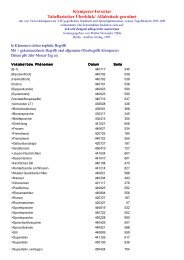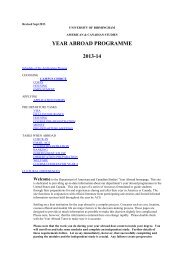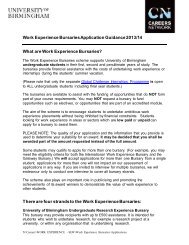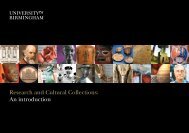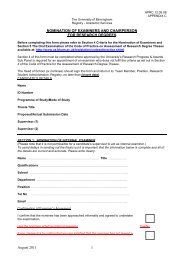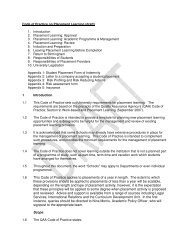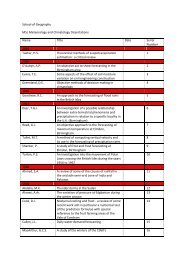reimagining-abstracts - University of Birmingham
reimagining-abstracts - University of Birmingham
reimagining-abstracts - University of Birmingham
Create successful ePaper yourself
Turn your PDF publications into a flip-book with our unique Google optimized e-Paper software.
eproduced on a theoretical level, where the domination <strong>of</strong> the particular would<br />
manifest its dissociation from European history and historical temporalities. However,<br />
it is still possible to account for the multiple existences <strong>of</strong> modernity outside the<br />
imaginary core <strong>of</strong> its origin, the aesthetic, cultural and political transmutations and<br />
conflicts <strong>of</strong> translation that cannot find resolution within that core, but evoke, through<br />
their separation from it, a potential for self-questioning that was indwelling in the<br />
modern project.<br />
Peter Mackridge<br />
peter.mackridge@stx.ox.ac.uk<br />
The Christian Hellenism and linguistic archaism <strong>of</strong> Ne<strong>of</strong>ytos Doukas<br />
The priest and teacher Ne<strong>of</strong>ytos Doukas (c.1760-1845) was one <strong>of</strong> the chief<br />
proponents <strong>of</strong> linguistic archaism in modern Greece. He believed that the Greeks (by<br />
which he meant the Orthodox Christians who recognized the Patriarchate <strong>of</strong><br />
Constantinople as their religious leader) should learn to speak Ancient Greek as their<br />
natural language. By doing so, he believed, they would be able to regain the wisdom,<br />
virtue and glory <strong>of</strong> the ancient Greeks. Doukas was a romantic religious nationalist<br />
who believed that all traces <strong>of</strong> Greek (and, even more so, non-Greek) culture that had<br />
developed in the Greek world since early Christian times should be effaced, so that<br />
the multilingual modern Orthodox Christians would be reborn as pristine Christian<br />
Hellenes.<br />
My paper will analyse the ideological presuppositions behind Doukas’ rhetoric<br />
(with its mixture <strong>of</strong> pagan Greek, Jewish and Christian references) within the context<br />
<strong>of</strong> the Greek language question and nation-building and against the background <strong>of</strong><br />
attitudes to the Ancient Greek language adopted by other leading contemporaneous<br />
Greek intellectuals, whether or not they represented the Orthodox Church. In<br />
particular, it will contrast Doukas’ Christian Hellenism with the secular Hellenism <strong>of</strong><br />
Korais. In view <strong>of</strong> the similarities between the religiously and nationalistically<br />
motivated attempts by Greeks and Jews to revive their ancient tongues as modern<br />
spoken languages, the paper will also compare and contrast Doukas’ failed attempt to<br />
revive Ancient Greek as a spoken language with the successful revival <strong>of</strong> Hebrew in<br />
the 19th and 20th centuries.<br />
Vasilios N. Makrides<br />
Christian Civilisation, Helleno-Christian Civilisation, Hellenic<br />
Civilisation: Ideological Developments in Post-War Greece<br />
This paper will deal with certain ideological developments in Greece after the Second<br />
World War and the ensuing Civil War concerning the relations between Hellenism<br />
and (Orthodox) Christianity. More specifically, it will focus on the programmatic<br />
construction <strong>of</strong> a “New Greece” in the 1950s after the previous disastrous decade, the<br />
visions connected with it and their promoters and bearers. Particular emphasis will be<br />
placed on the religious organization “Zoi” and other groups affiliated with it, such as<br />
the “Christian Union <strong>of</strong> Scientists”, led by Law Pr<strong>of</strong>essor Alexander Tsirindanis,<br />
which were instrumental in the articulation and dissemination <strong>of</strong> such ideas in Post-<br />
War Greek society. In fact, various terms were interchangeably used to describe the<br />
basic tenets <strong>of</strong> this ideology, such as “Christian Civilisation”, “Helleno-Christian<br />
Civilisation”, “Hellenic Civilisation”. These were aimed – among other things – at<br />
providing a coherent national ideology and defending Greece from the imminent<br />
danger <strong>of</strong> Communist infiltration. It will be argued that all these fermentations<br />
16



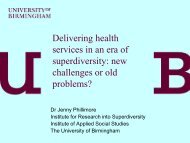
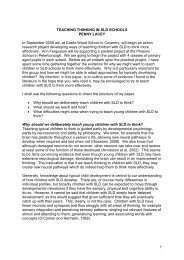
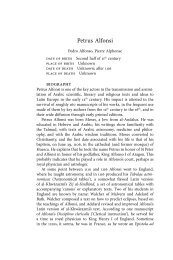
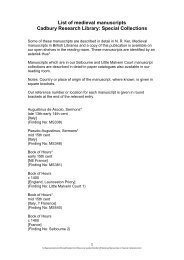
![Benyamin Asadipour-Farsani [EngD Conference abstract]](https://img.yumpu.com/51622940/1/184x260/benyamin-asadipour-farsani-engd-conference-abstract.jpg?quality=85)

